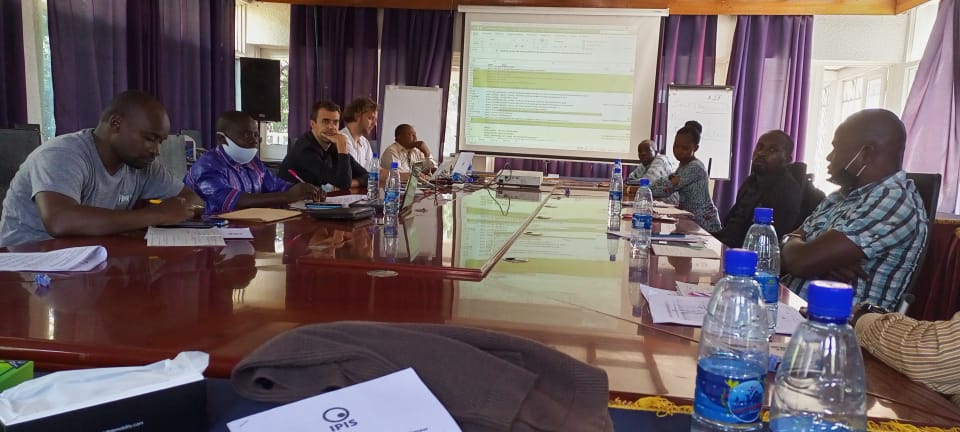Over the next two years, IPIS – in partnership with USAID, Tetra Tech and the Congolese Ministry of Mines (SAEMAPE) – will undertake a large-scale mapping effort of artisanal and small-scale mining sites in the eastern Democratic Republic of Congo (DRC), with the aim to provide observers, suppliers and policymakers with reliable data to understand artisanal mineral supply chains and conflict financing in the area.
Artisanal and small-scale mining (ASM) offers important opportunities for socio-economic development in eastern DRC. It also faces numerous challenges to fulfill this potential. When effectively monitored and mapped, legal and responsible ASM supply chains can promote peace and stability while providing livelihoods and contributing to rural development throughout the Great Lakes region.
In Eastern DRC, where the ASM sector is largely informal, the sector suffers from criminal activity and corruption. Most of the gold produced via ASM is smuggled out of the country, depriving the DRC government of critical revenue, and is often linked to financing a plethora of armed groups and insecurity in the region. Poor understanding of the informal ASM supply chains in the region risks to undermine the efficiency of responsible ASM efforts and local development in mining areas.
Reliable data from ASM sites and their context is therefore crucial.



IPIS has been mapping mining sites in eastern Democratic Republic of Congo (DRC) since 2009. The results have been widely utilized by various stakeholders, as they respond to a critical lack of data on the basic links between the mining and minerals trade on the one hand, and insecurity and development opportunities on the other.
IPIS’ data, accompanying maps and reports helped stakeholders throughout the supply chain to monitor artisanal mining activities and comply with a series of policy initiatives designed to curtail international trade in ‘conflict minerals’ in the Great Lakes region (including but not limited to the OECD Due Diligence Guidance for Responsible Supply Chains, as well Section 1502 of the Dodd-Frank Wall Street Reform and Consumer Protection Act).
As it has been several years since a large systematic update of the data has been realized, USAID’s Integrated Land and Resource Governance (ILRG) project will support IPIS to obtain up-to-date and accurate information from eastern DRC. In addition, IPIS will conduct qualitative research necessary to contextualize the data.
A workshop in August 2021 in Goma marked the beginning of this new round of primary data-collection in remote mining areas. Fifteen IPIS researchers, including both nationals and international staff, worked together for four days to update IPIS’ unique methodology and to prepare the field research. Participants discussed questionnaires, communication protocols, risk management strategy, IPIS’ Integrity Policy, as well as ‘field research’ and interview techniques.



“Le respect de l’autre, indépendamment de son origine, sex ou age est une valeur fondamentale que nous appliquons dans notre travail sur terrain. C’est par le respect des autres que nous pouvons atteindre une bonne collaboration. Que ce soit entre collègues ou avec les personnes que nous interrogeons et rencontrons sur le terrain, nous devons toujours appliquer cette valeur” – IPIS researcher, workshop August 2021
IPIS is once again happy to have the opportunity to work closely with technical services of the DRC Ministry of Mines, including SAEMAPE and the provincial Mining Divisions, and international partners USAID and Tetra Tech.
For updates on this project, you are invited to check the project’s webpage.


